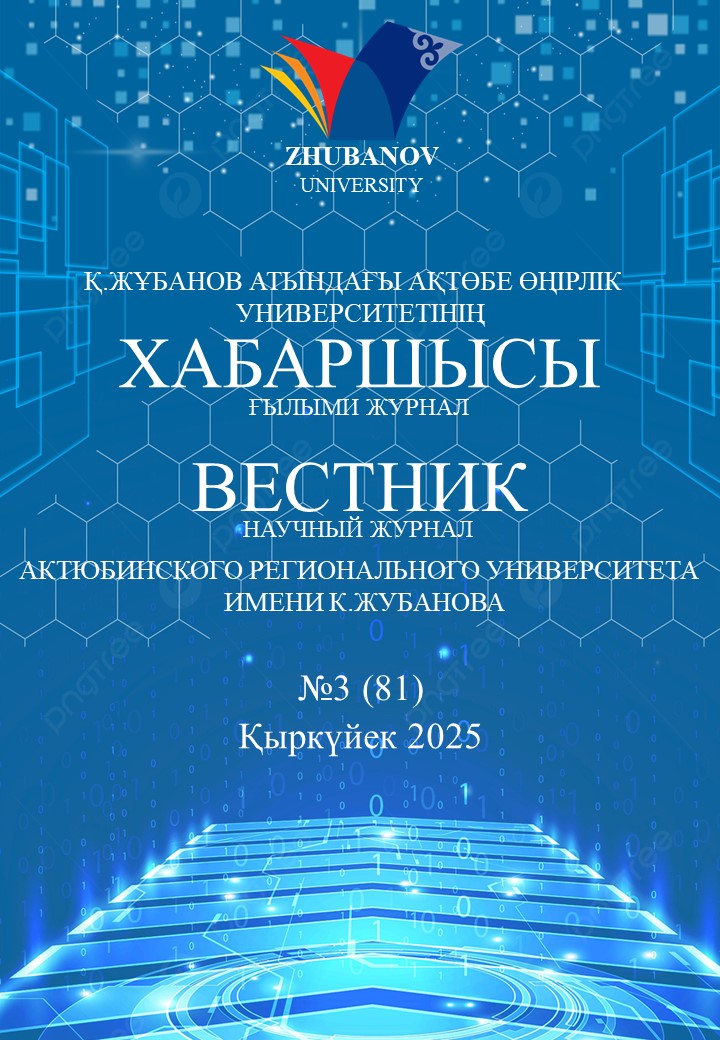The integration of artificial intelligence (AI) technologies into the education system is becoming a new strategic direction of modern pedagogy. This article provides a comparative analysis of international models and national practices of embedding AI in general secondary education curricula. Based on AI4K12, UNESCO, and OECD frameworks, the structural and methodological models for teaching AI are systematized, with content domains analyzed through the lens of theory, practice, and ethics. Furthermore, three AI textbooks published in Kazakhstan for grade 11 («Arman-PV», «Atamura», «Almatykitap») are evaluated based on structural and methodological criteria, highlighting their strengths and limitations. The study emphasizes factors such as the spiral model of content development, practice-oriented learning, interdisciplinary integration, use of modern digital platforms, and the incorporation of AI ethics. The findings underscore the need to cultivate not only algorithmic thinking but also social responsibility and critical reasoning. The authors propose a content-conceptual model that ensures a balance between theoretical knowledge, practical skills, and value-based education, thereby aligning national standards with international benchmarks. The article concludes with practical recommendations for systematic design of AI content adapted to the context of general education.
DAMEKOVA S.K.
Candidate of Pedagogical Sciences, docent, Astana International University, Astana, Kazakhstan.
E-mail: saule.damekova2020@gmail.com, https://orcid.org/0000-0001-8544-3019
KOISHYBAY B.YE.
Master's student, Astana International University, Astana, Kazakhstan.
E-mail: beknurkoishybai76@gmail.com, https://orcid.org/0009-0007-2097-2594
- Қазақстан Республикасы Үкіметі. Жасанды интеллектті дамытудың 2024–2029 жылдарға арналған тұжырымдамасын бекіту туралы. – Астана: ҚР Үкіметі, 2024. – 24 шілде, № 592. – Қол жеткізу режимі: https://adilet.zan.kz/kaz/docs/P2400000592
- AI4K12 Initiative. Big Ideas for AI Education – Access mode: https://ai4k12.org
- Ы. Алтынсарин атындағы Ұлттық білім академиясы. Орта білім беру жүйесінде жасанды интеллектті қолдану бойынша әдістемелік ұсынымдар. – Астана: Ұлттық білім академиясы, 2024. – 290 б.
- Асамбаев А. Ж. Жасанды интеллект негіздері: оқулық. – Алматы: Дәуір, 2011. – 136 б.
- Inspirit AI. AI Scholars Live Online Program – Access mode: https://www.inspiritai.com
- Kaggle. Data Science and Machine Learning Competitions [Электронный ресурс]. — Режим доступа: https://www.kaggle.com.
- Салғараева Г. И., Базаева Ж. Б., Маханова А. С. Информатика: жалпы білім беретін мектептің жаратылыстану-математика бағыты бойынша 11-сынып оқушыларына арналған оқулық. – Нұр-Сұлтан: Арман-ПВ, 2020. – 52 б.
- Исабаева Д. Н., Абдулкаримова Д. А., Рахимжанова Л. Б., Әубекова М. А. Информатика: жалпы білім беретін мектептің жаратылыстану-математика бағыты бойынша 11-сынып оқушыларына арналған оқулық. – Алматы: Атамұра, 2020. – 16 б.
- Архипова В. Г., Амдамова Р. Г., Беристемова Н. К., Кадыракунов К. Б. Информатика: жалпы білім беретін мектептің жаратылыстану-математика бағыты бойынша 11-сынып оқушыларына арналған оқулық. – Алматы: Алматыкітап баспасы, 2023. – 67 б.
- Serik M., Sadvakassova A., Duisegaliyeva N., Samashova G., Kultan J. Project-based learning for machine learning in computer vision courses: case study of Kazakhstan and Slovakia // International Journal of Innovative Research and Scientific Studies. – 2025. – Т. 8, № 2. – Б. 1183–1196. – DOI: 10.53894/ijirss.v8i2.5422. DOI: https://doi.org/10.53894/ijirss.v8i2.5422


